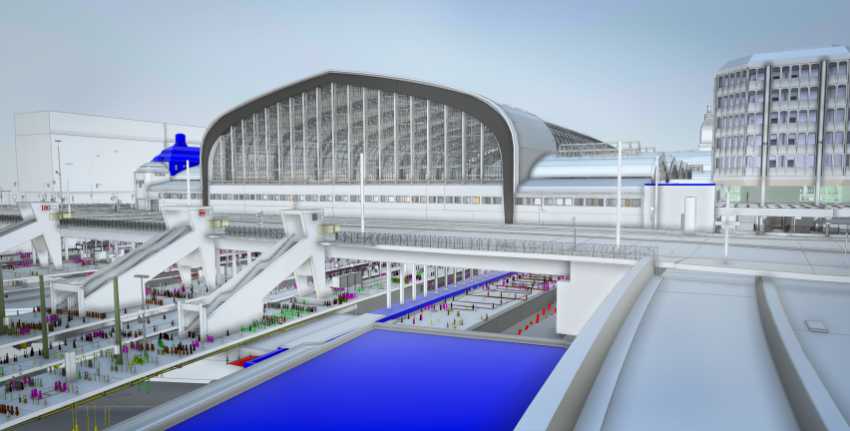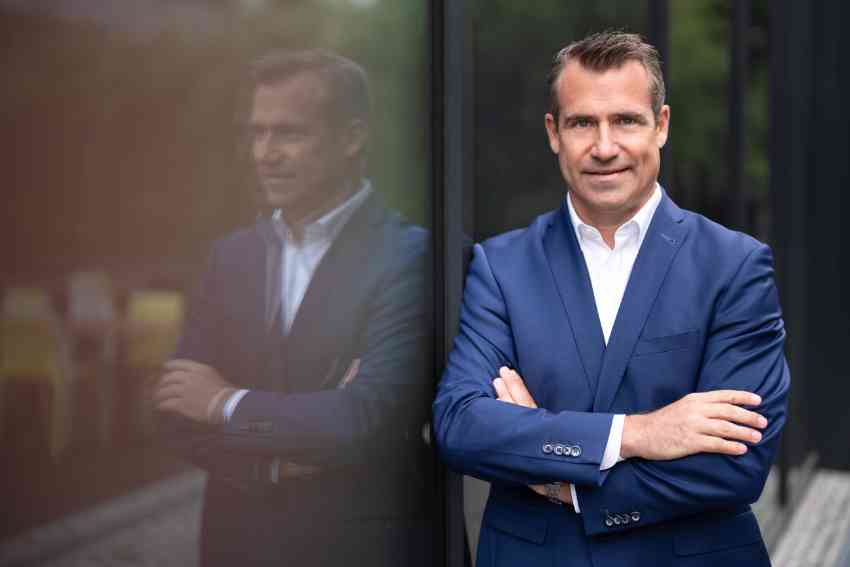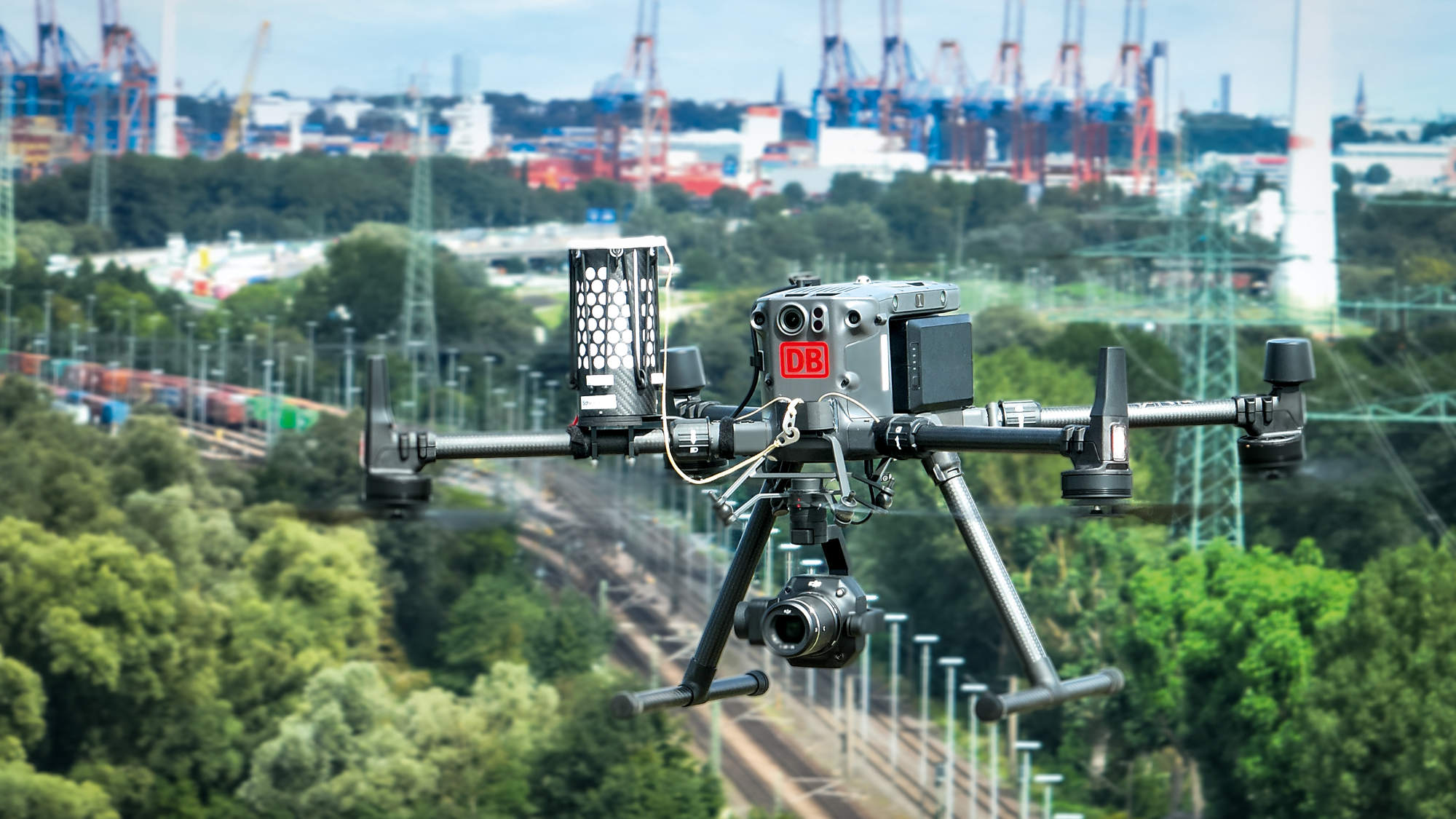DB E.C.O. Group integrates the expertise of DB Engineering & Consulting (DB E&C), DB International Operations, infraView, ESE Engineering und Software-Entwicklung, and inno2grid, alongside global subsidiaries and partnerships. The company leverages Deutsche Bahn’s (DB) infrastructure, engineering, and consulting experience to deliver innovative, sustainable mobility solutions.
Interview with Niko Warbanoff, CEO of DB E.C.O. Group.
A brief description of the company and its activities.
Niko Warbanoff: Since 2019, we’ve focused on blending rail expertise with digital technology across the value chain. With 8,200 employees from 94 countries, we offer future-oriented services while supporting environmental goals. Partnering with clients, we ensure cost-effective, reliable outcomes for complex projects.
What are the main areas of activity of the company?
N.W: We specialize in engineering, consulting, and operations, with infrastructure excellence forming the backbone of our services. By combining rail and digital expertise, we develop scalable solutions for customers worldwide. Our mission is to drive sustainable and innovative mobility solutions that shape the future of global transport.
What are the ranges of products/services?
N.W: Our engineering services span the entire project lifecycle—from design and construction to supervision, project management, validation and assessment, complemented by environmental and geo services. We employ advanced tools like Building Information Modeling (BIM) and mobile data capture to deliver sustainable rail infrastructure solutions. Knowledge transfer between Germany and international partners is one driver of such progress. For example, DB E&C´s so-called Design Center in Romania supports our projects in Germany and beyond with structural engineering and transport expertise, boosting resource efficiency and enabling market expansion. In consulting, we deliver strategic solutions in rail logistics and zero-emission mobility, ensuring sustainable and efficient transport systems. Our expertise extends to operations, maintenance, and rolling stock, as well as IT solutions and embedded systems, enabling seamless integration and innovation.

Copyright: DB Engineering & Consulting
Through strategy, organizational development, and training, we empower customers to navigate the complexities of modern mobility and drive transformative progress in the transportation sector. Our operating services ensure efficient management of passenger and freight systems through advanced diagnostics, strategic planning, and system integration. By leveraging advanced condition monitoring and diagnostics for rail infrastructure and rolling stock, we ensure reliability and performance, setting new benchmarks in railway operations worldwide.
What’s the news about new products/services?
N.W: Data-driven technologies are increasingly shaping infrastructure – whether digital construction documentation, on-site recording of infrastructure information or data processing from various sources. We provide innovative digital engineering solutions like X2BIM, a web-based platform enabling remote access to infrastructure data generated by diverse recording methods. Designed specifically for rail applications, X2BIM enhances project efficiency across Germany and increasingly also in other European countries. We’re also advancing Unmanned Aircraft System (UAS) technologies, offering cutting-edge data collection services as a full-service provider. By integrating years of experience with these innovations, we position ourselves as leaders in the digital transformation of rail infrastructure.
What is the state of the market where you are currently active?
N.W: DB E.C.O. Group is part of DB, Germany’s national railway company, and operates worldwide. The global railway market is steadily growing due to increasing demand for sustainable transport and investments in modernization and digitalization. From 2021–2023, the market grew 2.7% annually, with projections indicating €240.8 billion by 2027–2029. Urbanization, sustainability efforts, and digital advancements drive this growth. Western Europe leads the charge, with a focus on implementing the European Rail Traffic Management System (ERTMS) to enhance efficiency. In Germany, significant investments in rail freight and passenger systems support green transformation goals. These trends, combined with technological advancements, are helping rail meet modern transport challenges.
What can you tell us about market trends?
N.W: Rail is the most ecological mode of transportation. Against the backdrop of climate change, this market will experience an upswing. The railway industry is evolving rapidly, influenced by decarbonization, digitalization, and passenger needs. Governments are transitioning to electric, battery, and hydrogen-powered trains, supported by renewable energy. Digital tools like AI, IoT, and predictive maintenance are optimizing operations, while real-time updates and automated ticketing enhance passenger experiences. High-speed rail and urban transit projects are expanding globally, addressing congestion and promoting mass transit. Technologies like 5G and autonomous systems are advancing connectivity and operational efficiency. Additionally, innovations in freight logistics are meeting the demands of e-commerce, further solidifying rail’s role in sustainable mobility.

Copyright: HCPlambeck
What are the most innovative products/services marketed?
N.W: Germany is a leader in rail innovation, with breakthroughs in AI, 5G, and zero emission technologies. DB’s digital service depots use IoT and data analytics to streamline maintenance, while advanced signaling systems like Communications-Based Train Control (CBTC) improve safety and capacity. Infrastructure upgrades, such as Germany’s Riedbahn project, enhance connectivity and efficiency, aligning with EU targets to boost rail’s share in passenger and freight transport by 2050. These developments demonstrate the transformative potential of innovation in rail systems.
What estimations do you have for the rest of 2024?
N.W: In 2024, rail has continued to focus on sustainability, digitalization, and efficiency. Investments in electrification, hydrogen-powered trains, and green rail initiatives have grown and will grow, particularly in Germany, which aims for climate neutrality. Globally, digital tools for real-time travel updates and automation in operations will gain prominence, enhancing passenger and freight systems. Infrastructure investments, particularly in cross-border rail projects, are set to increase, fostering connectivity and shifting freight from road to rail. These advancements underscore rail’s essential role in sustainable global transport solutions, positioning 2024 as a year of steady growth and innovation.


